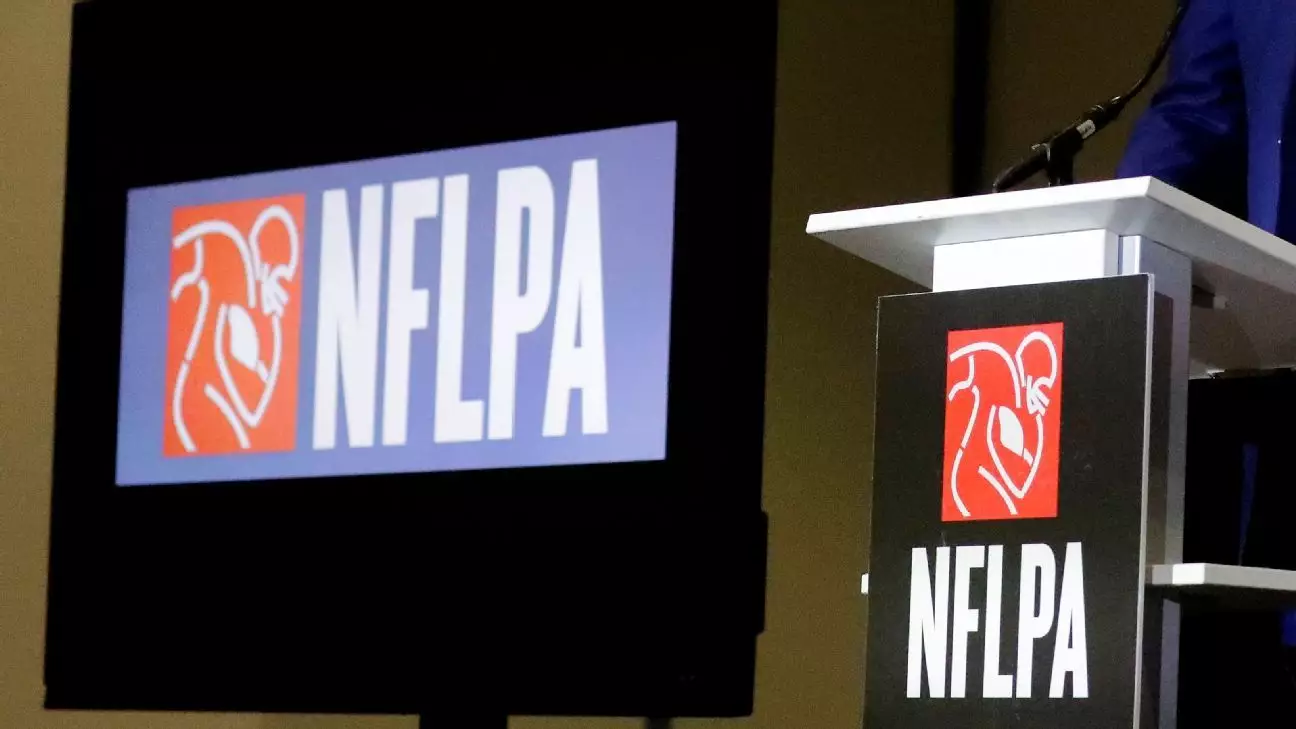The recent appointment of David White as interim executive director of the NFL Players Association signals more than a simple change in personnel—it exposes a profound crisis in the union’s credibility. This union, meant to serve the interests of a marginalized yet influential player demographic, is navigating a turbulent period marked by internal skepticism and external pressures. The selection process appears to be a compromised farce rather than a genuine democratic enterprise, further eroding the trust players once had. White’s background, impressive as it is, cannot instantly wash away the scars inflicted by Howell’s controversial resignation and the opaque process that resulted in White’s interim appointment.
It is ironic how the union, which champions transparency and player empowerment, operates under a veil of secrecy. White’s inclusion as a candidate, notably absent from the leaked finalist list, reveals an underlying pattern of stealth and exclusion. The absence of transparency signifies a leadership that is more interested in maintaining status quo power structures than actively restoring shaken faith. In essence, the union is mirroring most corporate or political institutions: opaque decision-making processes that breed resentment and skepticism among their constituents. The power imbalance between players and union leadership has become more pronounced, and White’s appointment risks cementing a cycle where insider manipulation overshadows genuine democratic representation.
Leadership Backgrounds and the Illusion of Change
Assessing White’s credentials, one finds an intriguing mixture of corporate and labor experience. His stint as board chair of the Federal Reserve Bank of San Francisco and leadership at SAG-AFTRA should provide some hope of stabilizing the union. Yet, this patchwork of experience, while impressive on paper, risks being disconnected from the core issues faced by NFL players—health, safety, fair pay, and dignity. It raises questions whether the union’s leadership, even when experienced, is capable of catalyzing the systemic reforms necessary to truly empower players, or if it merely offers a veneer of stability during a turbulent era.
Moreover, the fact that White was not initially on the leaked finalist list and that other internal candidates like Don Davis and Charlie Batch were considered signifies a broader failure: the process seems skewed towards insiders rather than genuinely considering fresh perspectives or external advocates who might challenge outdated structures. The union’s leadership appears more committed to perpetuating a known circle of political allies than to harnessing independent voices that could press for meaningful change. The current scenario underscores the peril of a leadership rooted in insider politics, which is ill-equipped to confront the complexities of player rights in an increasingly scrutinized league.
The Cultural Crisis of Accountability and the Erosion of Player Voice
The comments from NFL player representatives about Howell’s resignation highlight a fundamental issue: trust has been so badly damaged that even those tasked with defending the union see leadership as compromised. When players describe Howell’s departure as a “stain,” it reveals the depths of disillusionment. Players are painfully aware that their union’s reputation is entwined with their own livelihoods, health outcomes, and ability to influence league policies.
This atmosphere of distrust does not merely threaten union cohesion; it risks weakening the collective bargaining power players wield. When leadership credibility is in doubt, the entire union’s capacity to negotiate just contracts and advocate effectively diminishes. The power dynamic shifts perilously towards league owners, who benefit from a divided or disengaged player body. The union’s failure to demonstrate that it can effectively police itself and uphold accountability erodes the very foundation of organized labor.
The absence of a transparent, player-led process for selecting leadership breeds a sense of betrayal. Players see the decision-making process as compromised and beholden to external influences—private equity interests, league confidentiality agreements, and internal politics. This contempt for process fuels a vicious cycle: trust erodes further, and the union’s ability to mobilize as a united front diminishes, leaving players vulnerable to exploitation and indifference from the league apparatus.
The Necessity of Reinventing the Union’s Ethical Framework
In this critical juncture, the NFLPA must recognize that leadership isn’t just about credentials or strategic positioning—it’s fundamentally about integrity and the willingness to stand for players against entrenched league interests. White’s appointment, while perhaps a temporary salve, cannot serve as a long-term solution unless accompanied by an overhaul of the union’s governance processes, making them more transparent, inclusive, and accountable.
More importantly, the union’s leadership must actively listen to its members’ frustrations and fears. Instead of cloaking decisions in secrecy, leaders should embrace transparency and foster democratic participation. They need to acknowledge that many players see the union not as a protector but as an elite hierarchy mired in conflicts of interest. An authentic shift requires leaders to prioritize rebuilding trust, which is only possible through unwavering honesty, humility, and a commitment to justice for all players—whether on or off the field.
The stakes are high: a union that fails to uphold its moral authority risks becoming irrelevant, a mere appendage to league power rather than a genuine advocate. To regain its footing, the NFLPA must confront the harsh truths about its transparency failures and internal power struggles. It must foster an environment where players are empowered to challenge, scrutinize, and reshape their collective representation—nothing less than a true awakening to their rights’ importance in shaping their future.


Leave a Reply